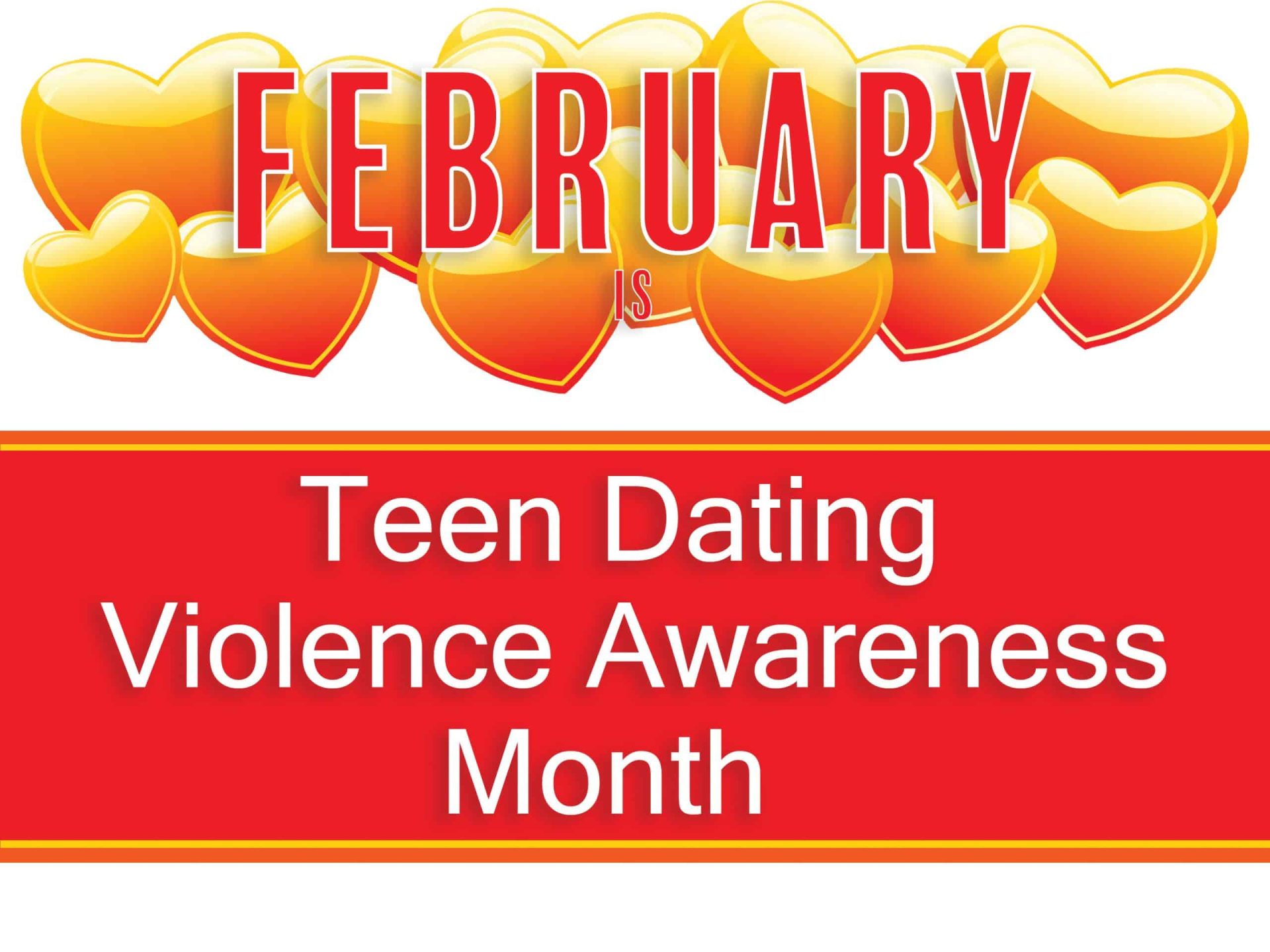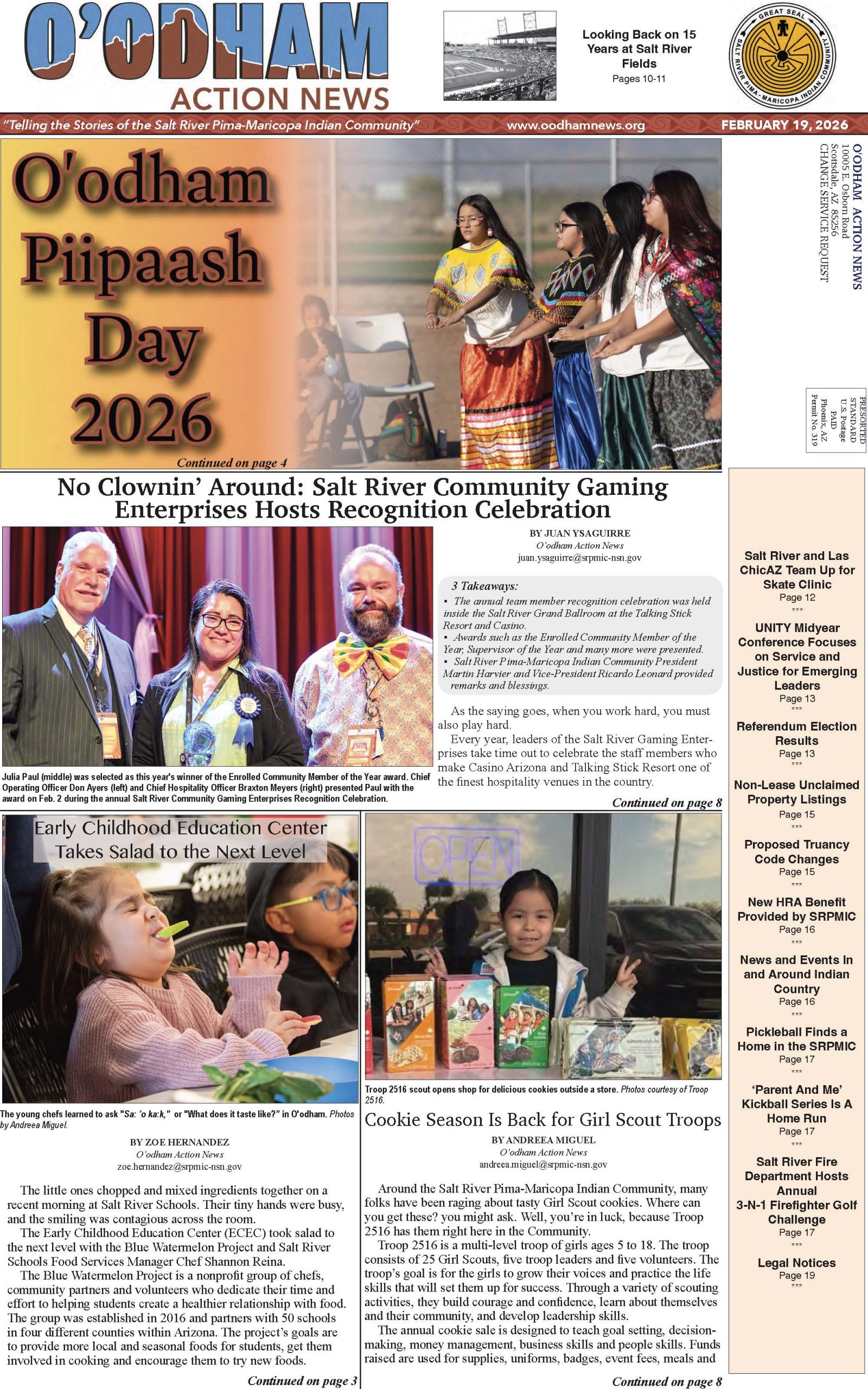VIEWS: 2310
March 2, 2022Teen Dating Workshops Identify Healthy Relationships
During February, Salt River Pima-Maricopa Indian Community Health Educator Vurlene Notsinneh-Bowekaty hosted Zoom workshops titled “Healthy Teen Dating: What Every Parent Should Know” and “Dating Matters: Healthy Relationships for Teens.” The goal was to help raise awareness about teen dating violence and help educate teens and their parents about these issues.
The workshops touched on the role of parents when their children are dating, how to make ground rules for dating, and how to educate teens about possible red flags.
Teen dating violence affects millions of young people in the United States. This violence is perpetrated physically, mentally, sexually and even through technology by online bullying.
Physical violence such as hitting, shoving, punching and physically restraining the victim to intentionally cause fear and injury is what most people think of when they think of dating violence; but in actuality, it’s a lot more than that. Teen dating violence is a cycle of abuse that includes a tension-building phase, an explosion, and a honeymoon phase. Throughout the cycle, a variety of behaviors are used to exercise power and control over the victim.
For parents, here are some warning signs to look out for when children start to date:
• Sudden changes in appearance, diet or sleeping habits; failing grades or dropping out of school activities.
• Sudden mood or personality changes.
• Acting secretive or withdrawn; avoiding friends and family.
• Apologizing or making excuses for the dating partner.
• Unexplained bruises, scratches or marks.
• Consistently checking their cell phone and responding immediately when contacted by the dating partner.
Signs that the dating partner may become violent include:
• Acting extremely jealous or possessive; showing up unannounced.
• Checking your phone to see who else texts and calls you.
• Telling you whom you can and cannot be friends with.
• Starting rumors, or threatening to start rumors, about you.
• Excessively texting you or sending nonstop messages.
• Criticizing your dreams, goals, family or friends.
• Tagging you in hurtful social media memes, posts or pictures.
Before your teen starts dating, it’s important to teach them about consent, how to be assertive, how to develop healthy and trusting relationships, and how to recognize the warning signs of abuse. Talking to your teen about dating violence will help start the conversation. Ask them what their idea of a healthy relationship is, and educate them as needed to prevent them from getting into a violent relationship. A healthy relationship requires trust, honesty, respect, communication and compromise with your partner.
Some ways to create and build a healthy relationship:
• Trust and support each other by supporting each other’s goals in life.
• Express your feelings before a minor disagreement can escalate into a huge blow-up.
• Share activities by hanging out together.
• Encourage each other’s enjoyment and/or success.
• Treat each other with kindness by helping one another and showing each other respect.
If you would like to learn more about teen dating violence, contact Vurlene Notsinneh-Bowekaty at vurlene.notsinneh-bowekaty@srpmic-nsn.gov.







